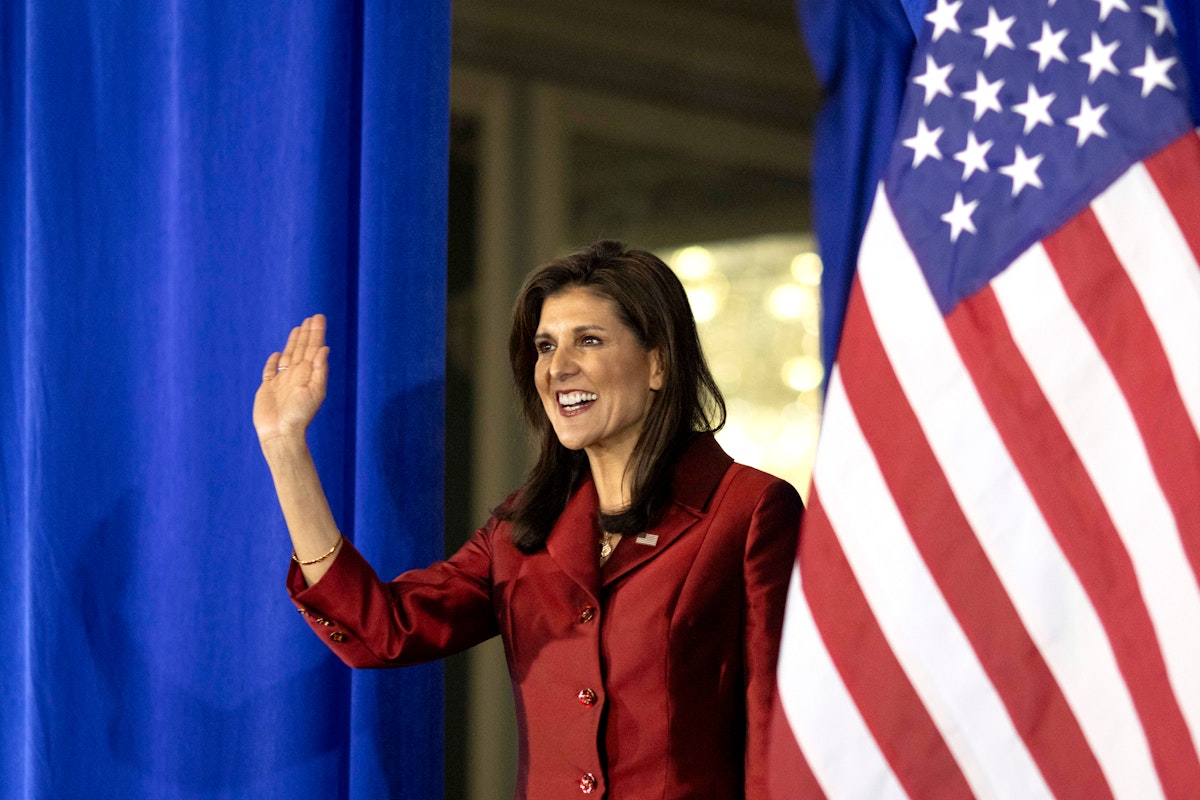
Inside
the Grand Ballroom, Haley appeared not a puppet as much as an actor playing the
part of an ambitious striver in a Netflix show about U.S. politics. She offered
a little of something to almost everyone. Anti-Democrat signage and rhetoric
was conspicuously absent, and the indications are that at least some of the
votes she got in South Carolina were that of Democrats and independents. She
was a moderate, a healer, and she would fight for “all of America,” she
claimed. She was offering a real choice, something other than “four more years
of Biden’s failure” and “four more years of Trump’s lack of focus.” She was a
woman for women, a military spouse for the military, and the child of
immigrants from India resolutely opposed to the “nine million illegals” with
“enough fentanyl to kill every single American.”
She
spoke for 15 minutes and stayed about as long to mingle with the crowd. Among
the Charleston rich, almost entirely white, there was a sprinkling of sleek Indian
faces. I spoke to one of them, a suave gastroenterologist who described himself
as an independent and who had known Haley from well before her entry into
politics. He had voted for Trump in 2016 and 2020, he said, and he had come to
regret that. But Biden wasn’t “all there,” Kamala Harris was “useless,” and it
was Haley he now pinned his hopes on. The child of an Indian diplomat who had
immigrated to the United States in 1989, he was utterly opposed to the open
border and the “illegal aliens” crossing it with impunity. “We all came here
legally,” he said. That was a crucial distinction.
It
made sense that the wealthy, upper-caste Indian elite would gravitate toward
Haley. Born to affluent Sikh immigrants as Nimarata Nikki Randhawa, Haley has
reinvented herself as a Southern white person. She is pro-military, pro-empire,
pro-Israel, pro-Narendra Modi, pro-business, anti-union, and anti-abortion. The
word race wasn’t mentioned once in her speech, but that too was in keeping with
her position that business is more important than confronting South Carolina’s
long, ongoing history of violence and immiseration against its Black
population. Robert Greene II, an African American professor of history at
Claflin University in Orangeburg, was present at the state capitol in Columbia on
July 10, 2015, when, in the aftermath of Roof’s massacre at Mother Emanuel
church, the Confederate flag finally came down. Haley, Greene pointed out to
me, had just the previous year—she was running for a second term as governor—said
that the Confederate flag wasn’t an issue since no business had complained
about its presence at the state capitol.